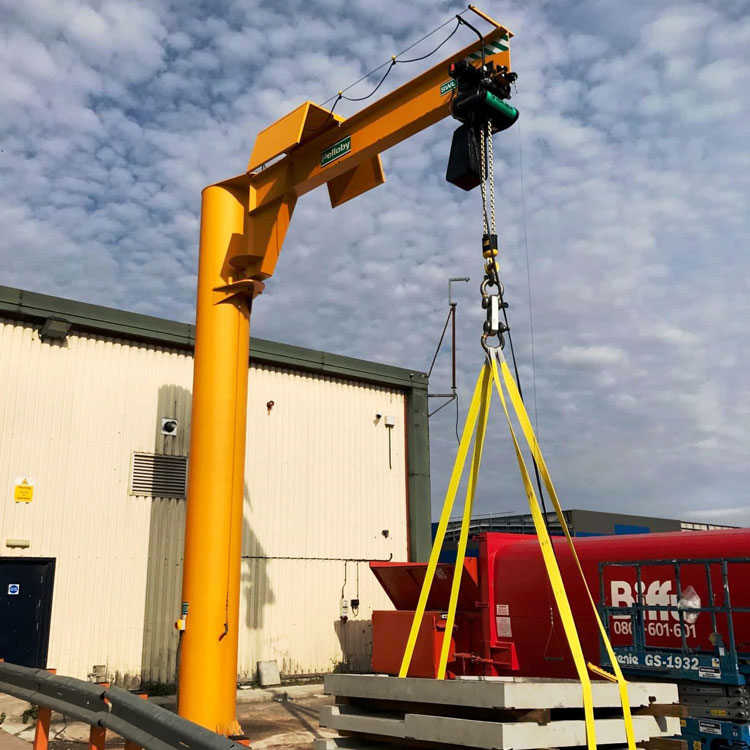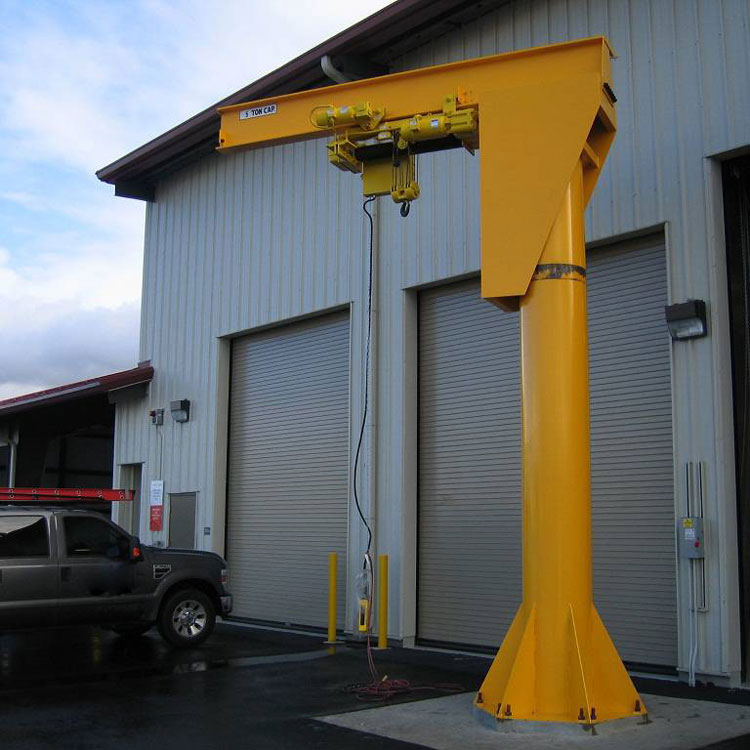A jib crane is a type of crane that consists of a horizontal arm, called a jib or boom, which is attached to a vertical mast or support structure. The jib can rotate horizontally, providing a wide range of movement for lifting and moving heavy loads.
Here are some key features and uses of jib cranes:
Structure: Jib cranes typically have a fixed base that is securely mounted to the ground or an elevated structure. The jib arm extends horizontally from the base and can rotate either manually or with the help of electric or hydraulic motors. The arm may also have a trolley or hoist mechanism attached to it for lifting and moving loads.
Lifting Capacity: Jib cranes come in various sizes and lifting capacities, ranging from small, lightweight models used in workshops or warehouses to larger, heavy-duty cranes used in industrial settings. The lifting capacity of a jib crane depends on factors such as the length of the jib arm, the structural strength, and the type of hoist or trolley system used.

Versatility: Jib cranes are known for their versatility and ability to provide localized lifting and maneuvering in a specific area. They are commonly used in manufacturing facilities, construction sites, ports, and warehouses, where they can efficiently handle repetitive lifting tasks or move loads within a limited radius.
Types of Jib Cranes: There are different types of jib cranes available, including wall-mounted jib cranes, floor-mounted jib cranes, and articulating jib cranes. Wall-mounted jib cranes are attached to a wall or column, while floor-mounted jib cranes are secured to the ground. Articulating jib cranes have additional jointed sections that allow for extended reach and flexibility.

Benefits: Jib cranes offer several advantages, such as improved efficiency and productivity, reduced manual labor, and enhanced safety. They can be used to lift and transport heavy objects with precision, freeing up floor space and minimizing the risk of accidents associated with manual lifting.
It’s important to note that jib cranes should be operated by trained personnel following proper safety protocols and guidelines to ensure safe operation and prevent accidents.
Overall, jib cranes are valuable lifting equipment that provide a practical solution for handling loads in a specific area, offering flexibility, efficiency, and increased productivity in various industrial and commercial applications.